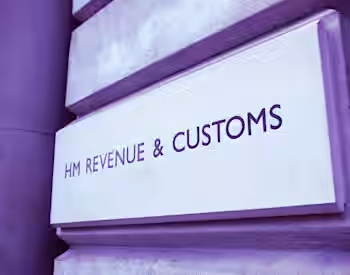Table of contents
Insight
HMRC's "nudge" letters on the CJRS
HMRC is sending out "nudge" letters to employers advising them that they may need to repay amounts received under the Coronavirus Job Retention Scheme.

The Coronavirus Job Retention Scheme ("CJRS") operated on the basis of "pay now, check later". Under "pay now", almost £30 billion was paid under the CJRS and related schemes. It is clear that the Government is keen to recoup any amounts that should not have been paid as swiftly as possible; and the "check later" stage has commenced. Numerous reports of alleged abuse of CJRS have been made to HMRC and multiple criminal investigations are underway. The other element of the check later stage is being undertaken by HMRC seeking to ensure that employers carry out the checks. HMRC is in the process of sending "nudge letters" to employers, informing them that they need to contact HMRC and may need to repay monies that have been paid.
The 'carrot' for compliance is a quasi-amnesty in respect of penalties that is in place until 20 October 2020. The 'stick' for non-compliance is 'naming and shaming' and potential criminal prosecution.
The dual approach of (a) a quasi amnesty and (b) sending "nudge" letters to elicit disclosures of non-compliance by taxpayers is one that is favoured by HMRC where there has been non-compliance in a particular area, such as offshore bank accounts or non resident landlords. Once HMRC receives information that there is a risk area where significant numbers of UK taxpayers have received income or gains that have not been declared on their UK tax returns, HMRC nudges that class of taxpayers to either certify that their tax returns are correct or make a disclosure of unpaid tax.
A previous example of this approach was in relation to the payment of rents to overseas owners of UK residential property. In Autumn 2019, HMRC dispatched waves of nudge letters to non-UK resident owners of UK residential property and their tenants. By the letters, HMRC reminded taxpayers of the obligations arising under the non-resident landlord scheme and in respect of the Annual Tax on Enveloped Dwellings or ATED regime.
HMRC's approach is to nudge a class. It is very unlikely that the letters have been issued on the basis of a detailed review of individual claims. The legality of nudge letters is debatable, but the letters can not be ignored. And, considerable care need to be taken when responding. Inaccurate responses can be used as the basis for a criminal investigation (and possible prosecution).
Overview of HMRC's rules for recovery
Schedule 16, Finance Act 2020 allows HMRC to recover amounts equivalent to CJRS payments to which the recipient was not, or is no longer, entitled by imposing a tax charge equivalent to 100% of any payment to which its recipient was not entitled. The charge applies, regardless of whether any overpayment arose from innocent, careless or deliberate behaviour.
HMRC can issue assessments now, where it considers that there has been an overpayment, rather than in accordance with the standard timetable for assessments. Assessed amounts are payable within 30 days; late payment may lead to the incurring of late payment interest.
The date by which an employer must notify overpayments to HMRC is the latest of:
(a) 90 days after receiving CJRS monies to which it was not entitled;
(b) 90 days after a change of circumstances, so that it was no longer entitled to CJRS monies; and
(c) 20 October 2020, provided that (a) or (b) was before 20 July 2020.
A failure to notify can result in the imposition of a penalty equal to 100% of the CJRS payment.
The 20 October 2020 date in particular provides a quasi-amnesty. Not making a declaration by the relevant date can result in HMRC charging penalties of up to 100% of the tax charge for a failure to notify.
What should employers do?
If a nudge letter has been received, an audit of the CJRS grants that have been received should be undertaken. We recommend that legal advice should be taken before responding to HMRC, particularly if it is necessary to notify HMRC of any potential liabilities.
Recipients of grants should take action now in reviewing their claims, in order to make disclosures before 20 October 2020. The CJRS rules are diverse and very detailed, and it is very simple for employers to have made innocent mistakes. Issues might include simple clerical errors in computations for example, such as miscalculating hourly pay, accidentally matching a calculation to an incorrect name, or making mistakes in respect of furlough rotations or holiday periods.
Regardless of how innocently mistakes have been made, HMRC's "nudge" letters and the legislation, suggest that HMRC's assumption after the 20 October 2020, will be that employers have acted deliberately in a culpable sense in not rectifying any issues before that date. That assumption may well involve the imposition of penalties, but will also carry with it reputation risks and considerable costs associated with dealing with HMRC enquiries, which may become criminal enquiries. The onus is very much on recipients to come forward now. Any costs of carrying out an audit a this stage, will likely be a fraction of the costs involved in dealing with any later HMRC enquiry after 20 October 2020.
Fieldfisher have developed two audit products that employers can use to identify CJRS risks: a self-audit and a Fieldfisher assisted audit. Our market leading Tax Disputes team has significant experience of HMRC's amnesties and disclosure schemes. It can advise in relation to notifications to HMRC and dealing with any issues that arise.
Please call or email any member of the team, who will be able to provide further information.
Listen to article
0:00
/
0:00

HMRC's "nudge" letters on the CJRS
0:00
0:00
